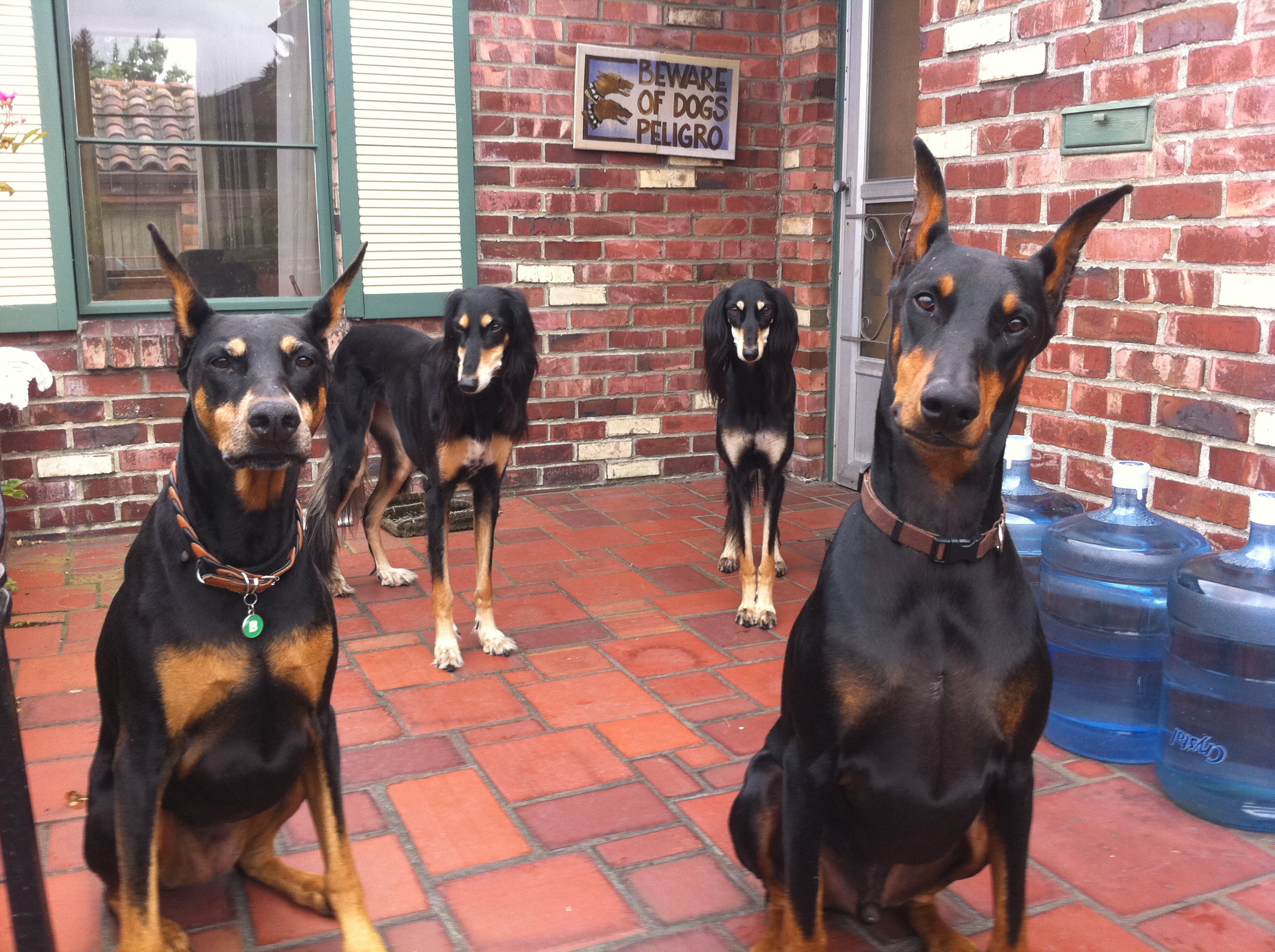Today I was walking my two marvelous dogs around a very popular local lake. Despite the spring rain, there were lots of others sharing the path on bikes, or with strollers or their dogs. When passing a woman with a young playful bulldog who wanted to come visit my dogs to play, she began loudly scolding the bulldog to “Leave It” instead of acknowledging me or my passing pups. Think about that: Leave. It. What is “It”? Me? Or my dogs? We’re sentient beings, we’re not Its. As if we were turds or contagious. Some popular dog trainer, maybe those damn monks, told everyone this is what to say to dogs to get them to leave an object alone, irregardless of the situation. And now every dog owner is bellowing “Leave It” at their poor dogs and innocent passers-by.
During a Delta Dog therapy training session a few years ago, our trainer pointed out if you are bringing your dog to visit a patient who might have food in their hands, yelling “Leave It” to the dog makes the person feel even worse than they already do. These people feel like objects in the first place, now they’re getting it confirmed by some dog owner who won’t acknowledge them using the proper pronoun. A much better alternative was to teach the dog “Not now!”
Doesn’t that sound better? A small shift in semantics but it’s so much nicer. It’s more respectful to the person and to the dog. It’s a gentler thing to say and it holds the faint whiff of hope: Puppy, you can’t have that particular thing now, but maybe, if you’re extra good, you can have it later! Think how much better it sounds to the person behind the object—they get to be included in the conversation, “Okay, the dog can’t have this now (but maybe later!)” instead of “I must be some thing so awful even the dog must avoid me!”
Where does this come into The Practical Widow BlogLand? Because it’s important to try to recognize how our words are being heard. Despite our best intentions, we may be meaning one thing and saying another. I’m sure the young girl with the bulldog did not mean to say “Leave those disgusting objects alone!” but that’s a bit how it came across. I’m certain that those who ask widows “Was there life insurance” or say “Mrs. X has been widowed for years and she’s still not over it” genuinely mean well. Perhaps they mean to say, are you doing okay or you’re not alone in extended grief. And maybe it’s not a good time for me to haul the dead guy out at the party, even though I might be feeling bad at that moment. Do I need to be the Debbie Downer?
Maybe we need to think whether the right thing to say is, “Not now”.
I hasten to add that you—and I mean you, you and you too—must acknowledge the death and give your sympathy if you haven’t done so already. Do not think “I’m just bringing up bad memories.” You’re not, you’re being a good friend. Acknowledge it and move on. Never just pretend it didn’t happen. Never ignore it. She will not think you’re being kind to her feelings, she will think you just don’t care. And I presume you do, or you wouldn’t be reading this.

